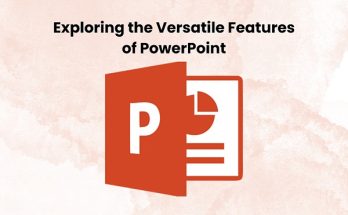In the business world, speed and efficiency are paramount. That’s why more and more companies are turning to electronic signatures (also known as e-signatures) to streamline their workflow. With an electronic signature, you can sign documents electronically, without having to print them out and sign them by hand. But what exactly is an esignature? And how does it work? Read on to find out.
How Does an Electronic Signature Work?
An electronic signature uses encryption to create a secure, tamper-proof sequence of characters that can be used in place of a handwritten signature. When you sign a document electronically, your computer converts your typed name into a unique code that is then securely transmitted to the other party or parties involved in the transaction.
This code—known as a digital signature—can be verified by anyone with the appropriate software. This verification process ensures that the document has not been altered in any way since it was signed and that the signer is who they say they are. In other words, an electronic signature carries the same legal weight as a traditional handwritten signature—but with the added benefit of being much more convenient.
Advantages of Using Electronic Signatures
There are many advantages to using electronic signatures, both for businesses and individuals. Perhaps the most obvious advantage is that electronic signatures save time. Instead of printing out documents, signing them by hand, and then scanning or faxing them back, you can simply sign them electronically—all from the comfort of your own desk (or couch).
In addition, because they’re based on strong encryption, electronic signatures are highly secure. This makes them particularly well-suited for sensitive documents, like contracts or NDAs. Electronic signatures also provide a clear audit trail that can be used to verify when a document was signed and by whom. This audit trail can come in handy if there’s ever any dispute about the contents of a signed document.
5 Things to Look for When Choosing an Electronic Signature Solution
Not all electronic signature solutions are created equal. When you’re shopping around for a solution for your business, there are a few key features to look for:
1. Ease of use: The best electronic signature solutions are designed with the user in mind. They should be easy to up and use, with an intuitive interface that anyone can understand.
2. Security: As we mentioned before, security is crucial when it comes to electronic signatures. Look for a solution that offers robust encryption and authentication, to ensure that your documents are safe from tampering or fraud.
3. Compliance: Make sure that the electronic signature solution you choose is compliant with all relevant laws and regulations. This will ensure that your documents are legally binding.
4. Scalability: As your business grows, you’ll need an electronic signature solution that can grow with you. Look for a solution that offers flexible pricing and the ability to add users as needed.
5. Customer support: When you’re dealing with sensitive documents, you can’t afford to run into any problems. That’s why it’s important to choose a provider that offers excellent customer support, in case you ever need any help.
Conclusion
Whether you’re sending a contract to a client or getting your will notarized, there’s a good chance you can now do it all without ever having to put pen to paper. Thanks to electronic signatures, signing documents is now quicker and easier than ever before—not to mention more secure.
Also Read About: How to Plan for Death and Estate Planning




